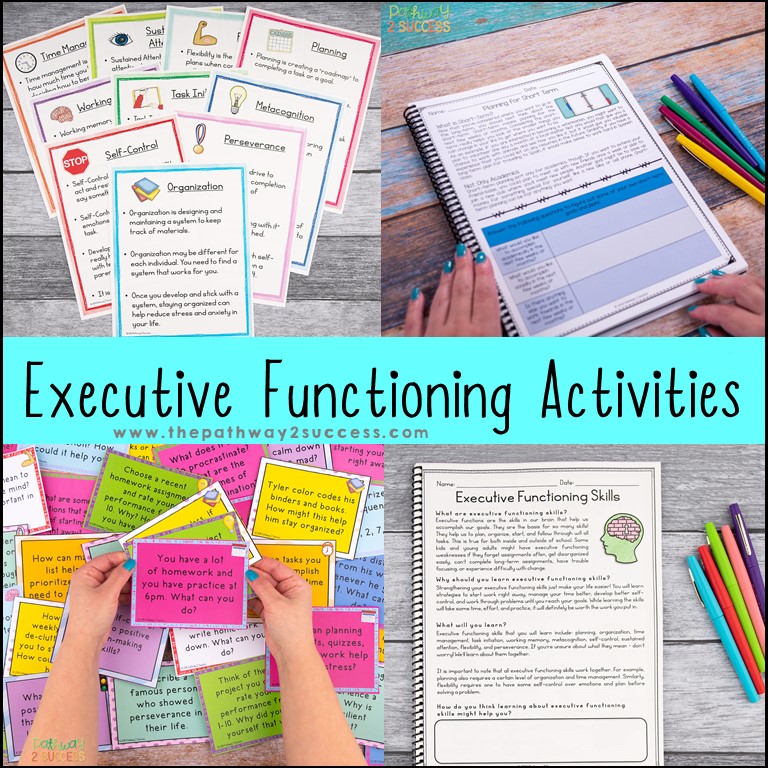
Tests, quizzes, and other assessments can pose a unique challenge for kids and teens with executive functioning struggles. On assessments, students need to use a variety of skills including task initiation, time management, flexibility, prioritization, self-control, attention, and perseverance. Add the added pressure of assessments, often in a time-pressured setting, tests and quizzes can become extremely challenging.
There are a number of accommodations to help children and young adults with executive functioning skills that can help them do their best on tests and quizzes.
Below are several executive functioning accommodations and strategies to support with tests, quizzes, and other assessments.

Accommodations for Tests & Quizzes
Student-Created Notes. Let students themselves create notes and allow them to use them on a test or quiz. This encourages students to study and prepare, but also provides accommodations for memory challenges.
Study Guide Before Test. For some students, providing them with a study guide and questions/topics to study can help them build independence once the test/quiz comes around.
Extra Time. Provide extended time for students to complete assessments. This gives an extra boost to students who work at a slower pace or struggle to stay focused. Of course, extra time does not mean unlimited time; the time should be a reasonable amount determined by the teachers in class.
Provide Word Banks. Write out word banks for students to choose from when answering questions. This gives support for students who struggle with memory skills. Word banks can be provided for fill-in-the-blank answers, but even essays, to remind students of certain words they should be incorporating in their explanations.
Separate Setting. Some students may need a quiet place, or even a different location where they can talk their work out loud.
Reduced Number of Problems. Reduce the number of questions on a given test or quiz. This allows a student to focus their best time and energy without getting fatigued. For example, if a math quiz has 10 problems with multiplication, perhaps reduce it to 5 questions. This still gives a student the chance to show their knowledge, but makes the take shorter and more manageable.
Highlight Key Instructions. Help directions for assessments stand out by highlighting the most important words and information.
Read Tests Aloud. In an individualized or small group setting, read test questions and directions aloud. This can help students stay on task while making sure directions are understood.
Extra Credit Option. Create a space on tests and quizzes for students to share everything else they know on the topic that wasn’t asked about. Points and credit given would be up to teacher discretion.
Correct Wrong Answers for Credit. Allow students to fix incorrect answers for credit (or partial credit) on assessments. This practice encourages students to use strategies and understand what they did wrong. You may consider requiring your student to give a quick rationale for their new answer to promote metacognition.
Teaching Executive Functioning Strategies
Accommodations and supports are important, but it is also critical to make time to teach students about their executive functioning skills and strategies they can use. Use this yearlong set of Executive Functioning Lessons and Activities to teach about how to plan, stay organized, manage your time, and more.

One final thought: Remember to teach students about the accommodations you are putting in place for them. For example, if you are highlighting test directions, let them know and explain why. This can help build independence and self-awareness for the learner as well.








Leave a Reply